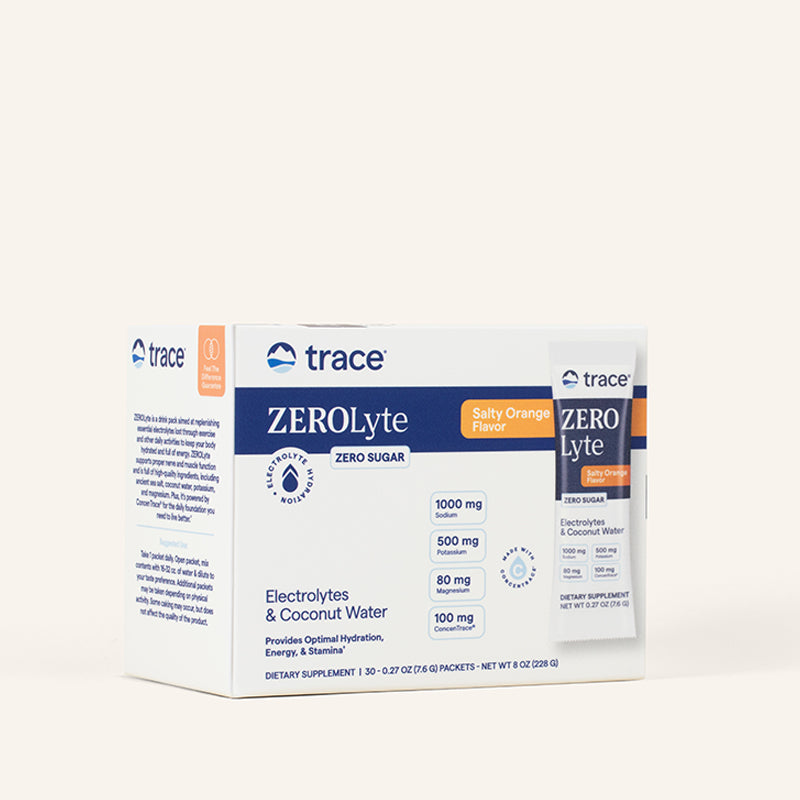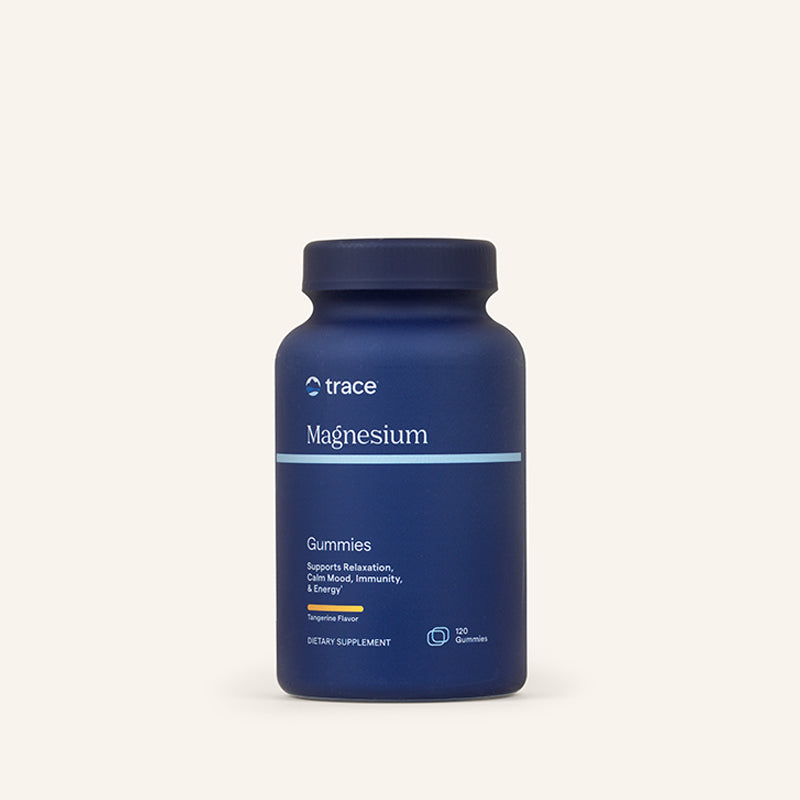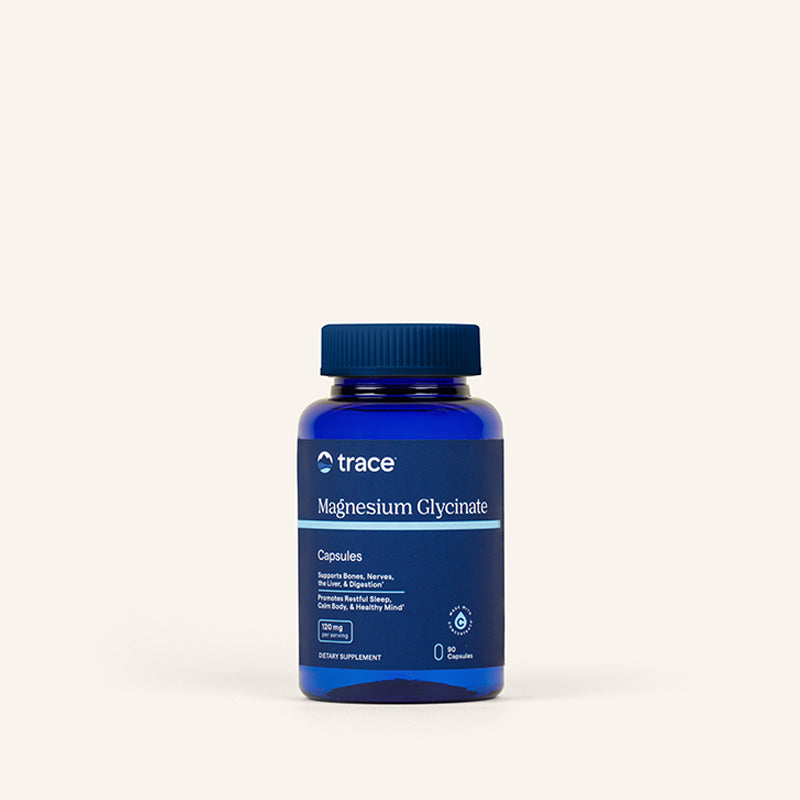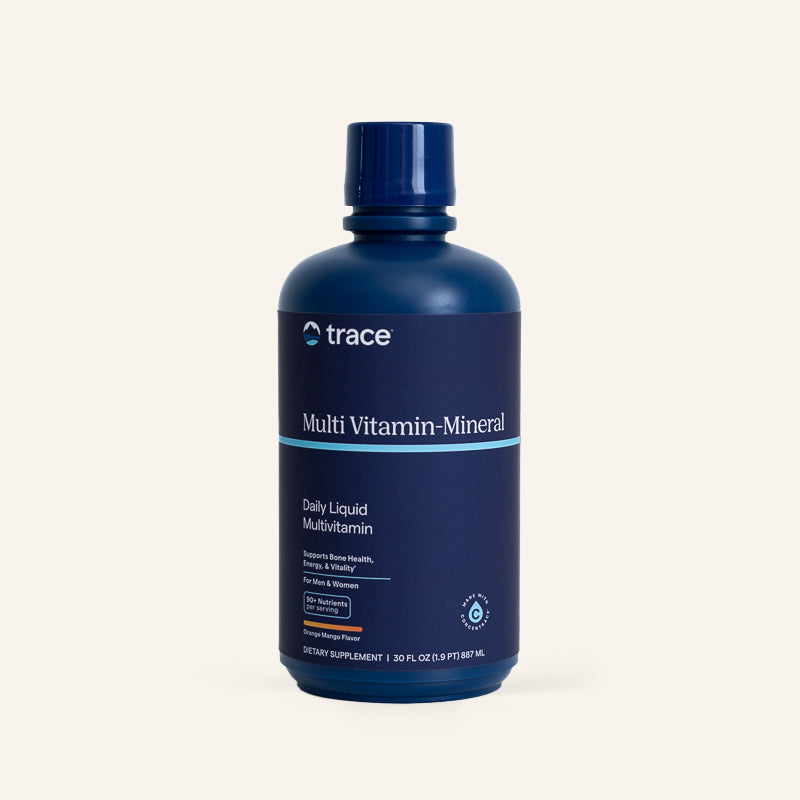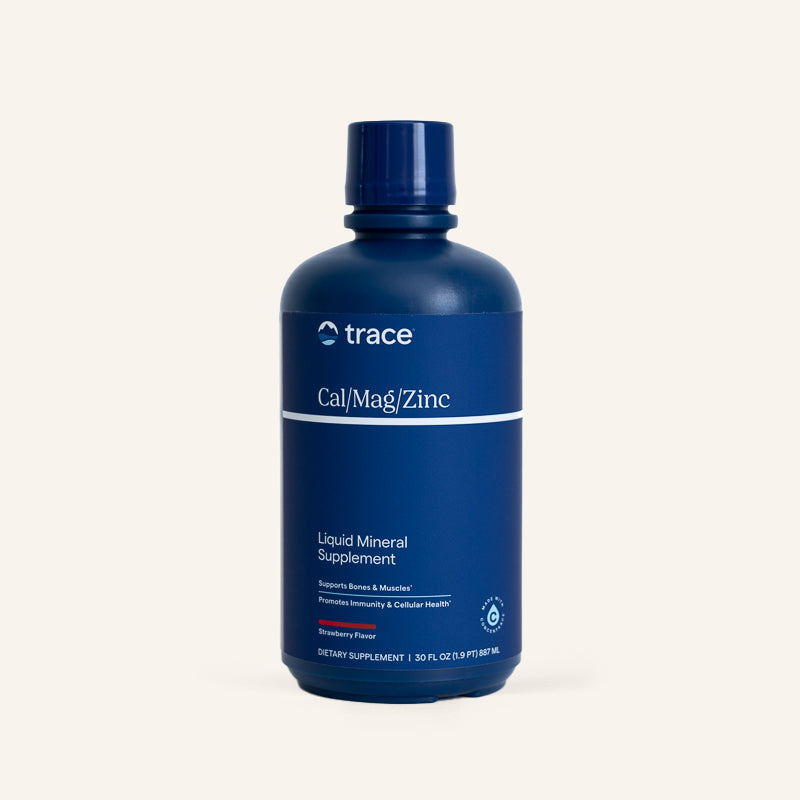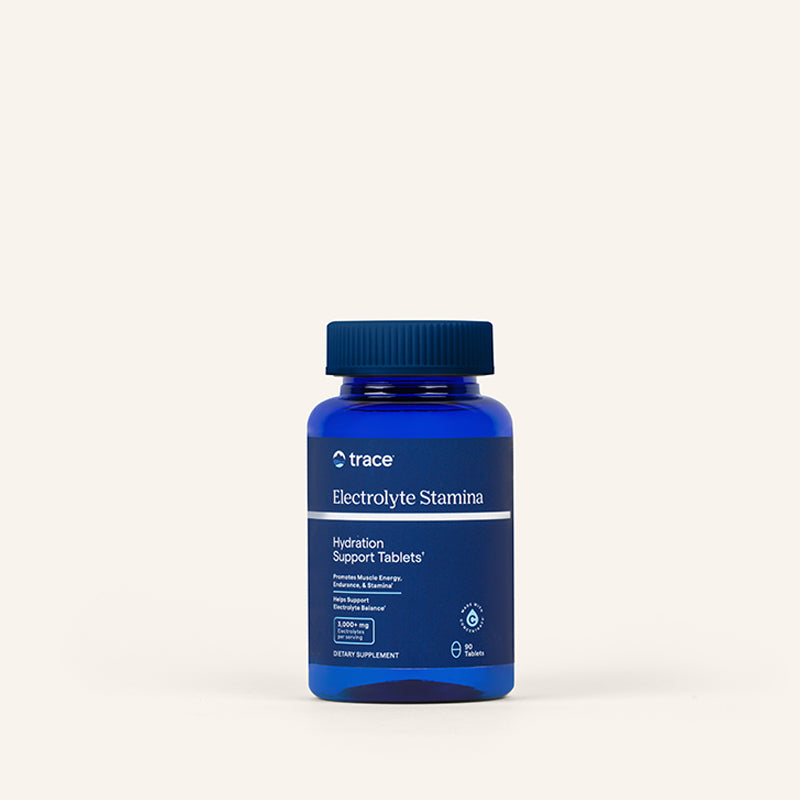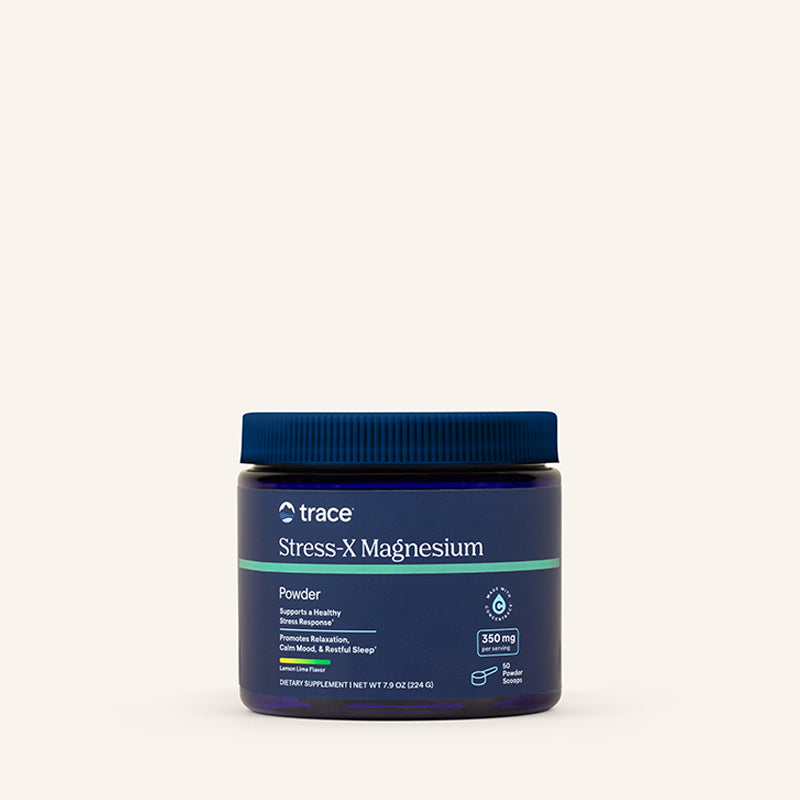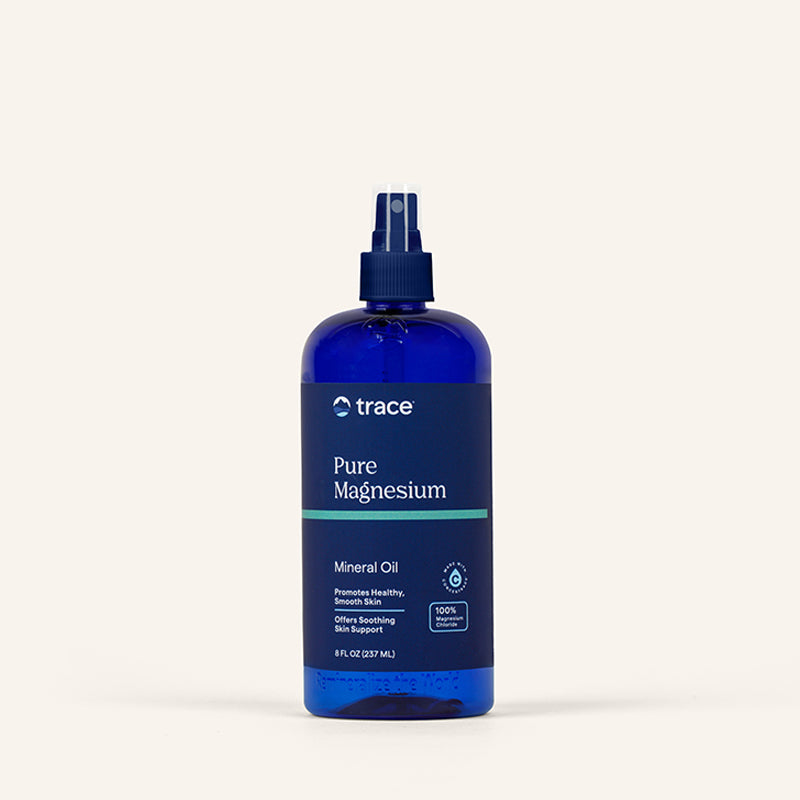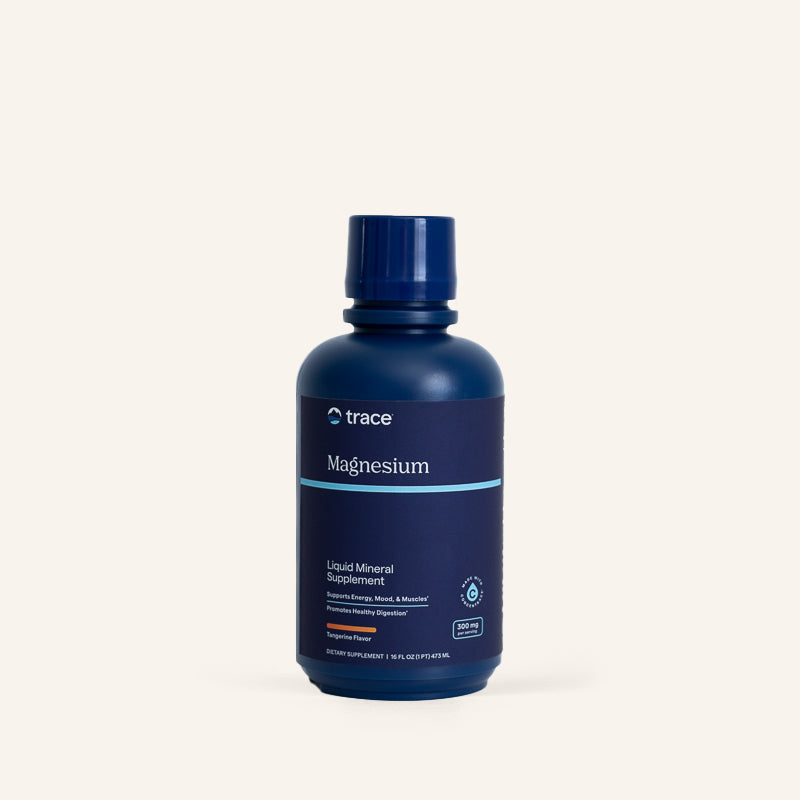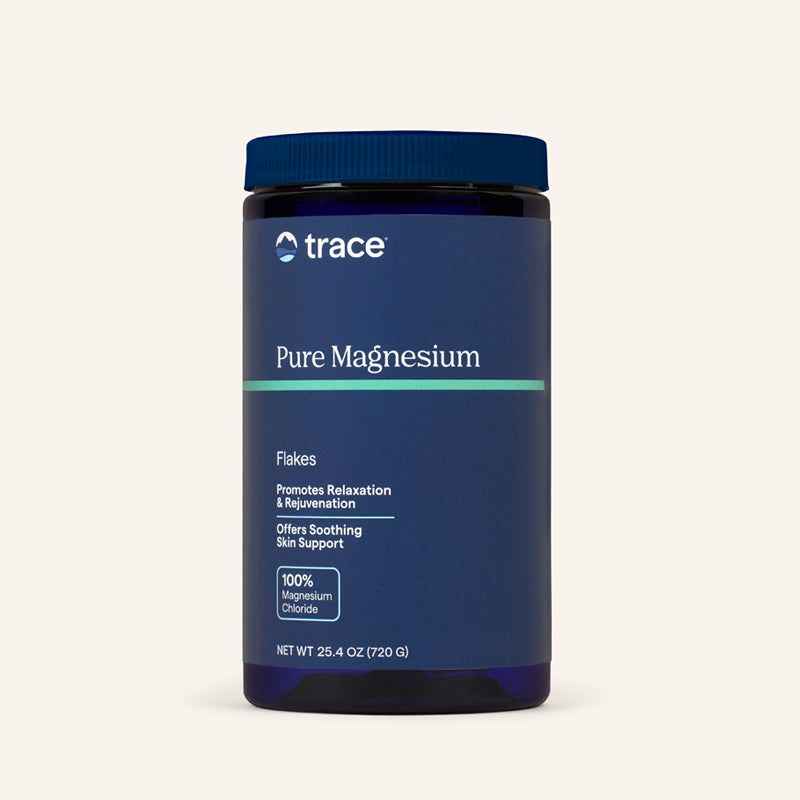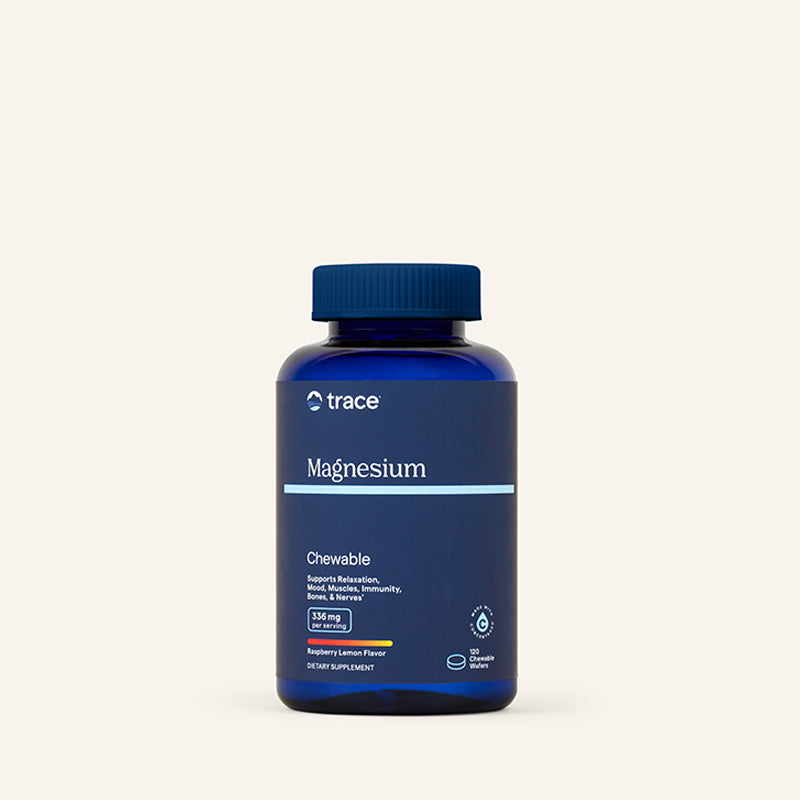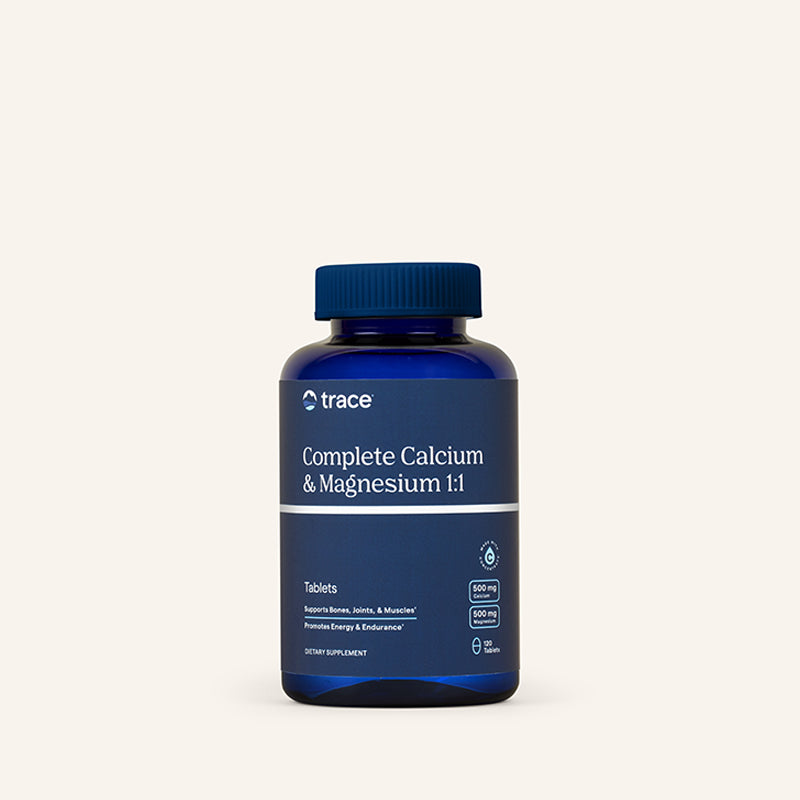Magnesium For Bone Health
At Trace, we’re committed to using science and innovation to create products that exceed expectations, helping people lacking minerals get the support they need. We aim to help you feel better, restore balance, and truly experience the difference minerals can make in your life.
Filters
Filters
Key Takeaways:
- Magnesium’s Role In Bone Health: Magnesium supports bone health by aiding calcium absorption, influencing bone cell activity, and regulating vitamin D levels essential for maintaining bone density and strength.
- Importance Of Magnesium-Calcium Balance: A balanced magnesium and calcium intake is crucial for optimal bone health, as imbalances may weaken bones and increase the risk of osteoporosis.
- Factors Affecting Magnesium Absorption: Age, gender, diet, and health conditions impact magnesium absorption, highlighting the need for personalized strategies involving dietary adjustments or supplementation.
How Magnesium Supports Bone Density and Strength
Magnesium is a cornerstone mineral for bone health, playing several critical roles in maintaining bone density and promoting bone strength. Its importance cannot be overstated, as it directly influences the bone remodeling process — a cycle of bone breakdown and renewal vital for healthy bone structure.
Facilitating Calcium Absorption
Magnesium facilitates calcium absorption, a mineral equally important for bone health. Without sufficient magnesium, the body cannot efficiently utilize calcium, undermining bones' structural integrity and density. Magnesium sets the stage for calcium to fortify the bone matrix, underscoring a synergistic relationship crucial for optimal bone health.
Supporting Bone Cell Activity
Magnesium influences the activity of osteoblasts and osteoclasts — cells responsible for forming and resorbing bone tissue, respectively. It stimulates the function of osteoblasts, encouraging the formation of new bone while simultaneously moderating the activity of osteoclasts, ensuring that bone resorption does not outpace bone formation.
Strengthening The Bone Matrix
Magnesium also contributes to the synthesis of bone matrix proteins. These proteins are essential components of the bone’s structural framework, providing bones with the resilience and flexibility to withstand physical stress. Magnesium’s role in protein synthesis ensures that the bone matrix is continually replenished and maintained, supporting overall bone health.
Regulating Vitamin D Levels
Magnesium regulates vitamin D levels within the body, which, in turn, affects bone density. Vitamin D is crucial for bone health, enhancing calcium absorption, and its activation depends on adequate magnesium levels. Thus, maintaining sufficient magnesium levels directly supports bone structure and ensures that vitamin D can perform its bone-protective roles effectively.
Evaluating Your Daily Magnesium Needs For Healthy Bones
When incorporating magnesium for bone health into your daily regimen, it's imperative to understand how much your body truly needs to support optimal bone integrity and function. Magnesium is pivotal in bone health by contributing to bone structure density, strength, and overall maintenance. Yet, determining the appropriate daily intake can be both a science and an art.
The Recommended Dietary Allowances (RDAs) for magnesium suggest that adult males require 400 to 420 mg daily, while adult females need 310 to 320 mg daily. These requirements vary by age and physiological status, such as pregnancy. However, the "one-size-fits-all" guidelines may not perfectly fit everyone's health profile and activity level.
To tailor magnesium intake specifically for bone health, one must consider several factors:
- Age & Gender: Older adults may benefit from a slightly higher magnesium intake as bone density naturally decreases.
- Dietary Habits: Individuals consuming a diet high in processed foods may require more magnesium, as these foods typically offer minimal nutritional value.
- Health Conditions: Certain health conditions, such as gastrointestinal diseases, can impair magnesium absorption, necessitating a higher intake.
- Lifestyle Factors: High levels of stress and physical activity can increase magnesium requirements, as both can deplete magnesium levels in the body.
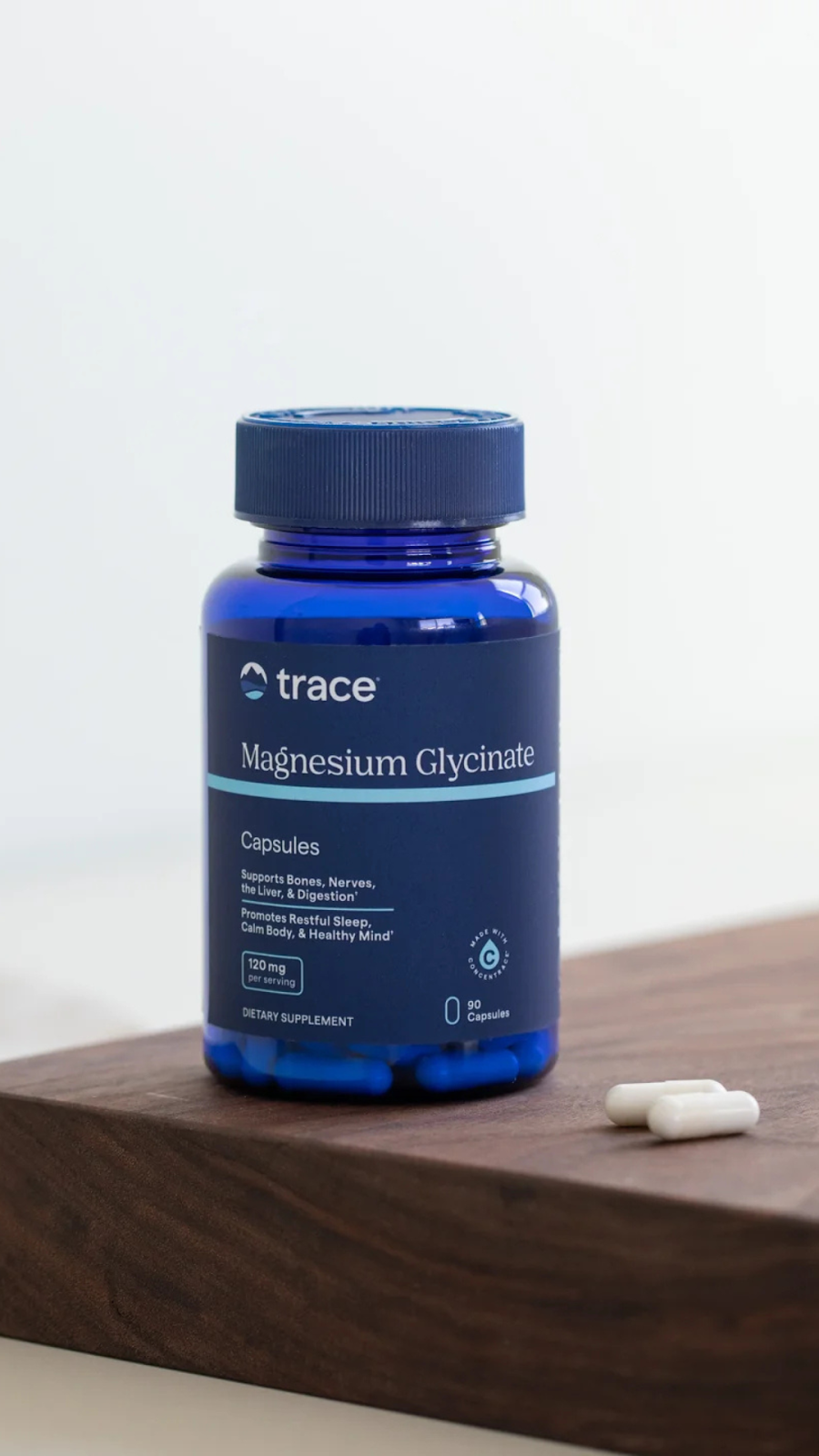
Signs Of Magnesium Deficiency
Recognizing the signs of magnesium deficiency is crucial for addressing bone health issues before they become severe. Magnesium is vital in bone integrity and density and supports the body's overall function. Several indicators can alert you to the deficiency when the body lacks sufficient magnesium. Attention to these signs helps safeguard bone health and enhance general well-being.
Here are several symptoms that may suggest a magnesium deficiency:
- Muscle Cramps & Spasms: Magnesium is integral to muscle relaxation. Without enough of it, muscles may involuntarily contract, leading to cramps and spasms that can be both painful and persistent.
- Fatigue & Weakness: Given magnesium's role in energy production, a magnesium deficiency can result in fatigue or general weakness, impacting daily activities and overall quality of life.
- Nervous System Issues: Symptoms such as numbness, tingling, and abnormal heart rhythms can indicate that the nervous system is not optimal due to inadequate magnesium levels.
- Mood Disturbances: Magnesium insufficiency has been linked to affecting mental well-being, contributing to mood swings, anxiety, and even depression.
- Bone Health Problems: Since magnesium works closely with calcium to support bone structure, a deficiency can lead to weaker bones, increasing the risk of osteoporosis, fractures, and delayed healing from bone-related injuries.
Diet vs. Supplements: Best Magnesium Supplements for Bone Health
When considering magnesium's role in bone health, the next inevitable question is: How best can one ensure they get enough? The dichotomy between sources — diet versus supplements — offers varied paths to achieving the same goal: optimal bone health. Both avenues have their advantages and merit exploration, especially for those among the 99% who are mineral-insufficient.
The Dietary Approach
A magnesium-rich diet is the most natural way to support bone health. Foods high in magnesium include leafy greens, nuts, seeds, whole grains, and legumes. Integrated cleverly into daily meals, these foods can contribute significantly to the magnesium levels required for strong bones. The advantage of the dietary approach lies in the magnesium intake and the broad spectrum of nutrition these foods offer, including fiber, vitamins, and other minerals essential for overall health.
However, the challenge with relying solely on diet is the modern lifestyle and the accessibility of nutrient-dense foods. Soil depletion and processed foods can lower magnesium content in our meals, making it harder to achieve the necessary intake through diet alone.
The Supplemental Approach
This is where magnesium supplements, such as those enriched with ConcenTrace, come into play. Supplements offer a direct, efficient, and measurable way to ensure you receive the magnesium your body requires for bone health, bypassing the uncertainties of dietary sources. Based on scientific research and tapping into natural, mineral-rich sources like the waters of the Great Salt Lake, these supplements provide a concentrated and bioavailable form of magnesium.
Moreover, supplements can be particularly beneficial for individuals with increased magnesium needs, dietary restrictions, or those who find it challenging to consume a magnesium-rich diet consistently. They are a practical complement to daily nutrient intake, ensuring the foundational minerals are adequately met.
Synergy For Optimal Health
While the question of diet vs. supplements is common, the most effective approach to maximizing bone health may not lie in choosing one over the other but in embracing both. A balanced diet, accompanied by high-quality magnesium supplements, can provide a comprehensive strategy for maintaining bone health. This synergistic approach leverages the extensive benefits of a nutrient-rich diet while ensuring the specific needs for magnesium are met through supplementation.
How To Safely Increase Magnesium Intake
Understanding safe and effective methods is crucial to optimizing bone health through enhanced magnesium intake. Magnesium plays a pivotal role in bone formation and influences the activities of osteoblasts and osteoclasts, cells responsible for the healthy turnover of bone. Additionally, it assists in regulating calcium levels within the body, an essential factor in maintaining bone density.
Here, we outline recommended strategies to increase magnesium levels, tailored to fit into your daily routine seamlessly:
Prioritize Magnesium-Rich Foods
Try to incorporate a variety of magnesium-rich foods into your diet. Leafy green vegetables like spinach, Swiss chard, legumes, nuts, seeds, and whole grains are excellent sources. Avocado, banana, and dark chocolate offer magnesium and other nutrients beneficial for overall health. These natural sources of magnesium come packaged with fiber, vitamins, and minerals, enhancing overall nutrient absorption.
Consider Supplementation Wisely
When dietary sources are insufficient, magnesium supplements can be a practical solution. However, choosing a high-quality supplement, such as those that include ConcenTrace®, is paramount to ensure optimal absorption and benefit. Begin with a lower dose to assess your body’s tolerance and gradually increase as a healthcare provider recommends. Be mindful of the different forms of magnesium available and select one best suited to your needs, such as magnesium glycinate or citrate, known for their high bioavailability and gentleness on the digestive system.
Balance With Other Minerals
Magnesium works synergistically with other minerals, particularly calcium, vitamin D, and vitamin K2, to support bone health. Ensure your regimen includes a balanced intake of these essential nutrients to maximize magnesium's benefits. This holistic approach supports bone density and health and contributes to the proper functioning of the muscular and nervous systems.
Stay Hydrated And Mind Your Digestive Health
Adequate hydration and a healthy digestive system can enhance magnesium absorption. Water is crucial for all bodily functions, including the transport of nutrients. Furthermore, probiotics and fiber-rich foods support a healthy gut microbiome, potentially improving mineral absorption and utilization.
Monitor And Adjust According To Needs
It's important to monitor your body's response to increased magnesium intake. Individual needs may vary due to age, health status, and lifestyle. Periodic review with a healthcare professional can help adjust your intake accordingly to maintain optimal bone health and overall well-being.
Read also:
- Can You Take Calcium And Magnesium Together?
- What is ConcenTrace: The Perfect Balance
- Just Salt And Water? What Are Electrolytes?
Sources:
1. Castiglioni, S., Cazzaniga, A., & Albisetti, W. (2013). Magnesium and osteoporosis: A review. Journal of Bone and Mineral Research, 28(6), 1240-1249. https://pubmed.ncbi.nlm.nih.gov/23912329/
2. Uwitonze, A. M., & Razzaque, M. S. (2018). Role of magnesium in vitamin D activation and function: Implications for health and disease. Nutrients, 10(11), 1-14. https://pubmed.ncbi.nlm.nih.gov/29480918/
3. Chunge Sun, et al. (2010). Dietary magnesium intake and risk of depression. https://pubmed.ncbi.nlm.nih.gov/30611059/
Frequently Asked Questions
Magnesium is crucial to bone health as it contributes to bone structural development. It converts vitamin D into its active form, which in turn helps absorb calcium. Additionally, magnesium stimulates the hormone calcitonin, which helps preserve bone structure by drawing calcium out of the blood and tissues back into the bones.
Magnesium is essential for bone density because it aids in the formation of bone crystals, which make the bones strong and rigid. Adequate magnesium intake is associated with higher bone density, better bone crystal formation, and a lower risk of osteoporosis in the elderly.
Yes, magnesium can help prevent osteoporosis – influencing the activities of osteoblasts and osteoclasts, the cells responsible for the breakdown and formation of bone. Magnesium deficiency has been linked to osteoporosis because it results in weaker bones and an increased risk of fractures.
The best dietary sources of magnesium include green leafy vegetables (such as spinach and kale), nuts and seeds (like almonds and pumpkin seeds), whole grains, legumes, and fortified foods. Including various foods in your diet can help ensure adequate magnesium intake.
Adults require different amounts of magnesium depending on age and gender. For instance, men aged 19 to 30 need 400 mg daily, while women need 310 mg daily. After age 31, the recommended daily allowance increases to 420 mg for men and 320 mg for women.
Yes, it is possible to consume too much magnesium, primarily through overuse of supplements, which can lead to adverse effects such as diarrhea, abdominal cramping, and irregular heartbeat. While it's difficult to consume too much magnesium from food sources, supplements should be used cautiously and under the guidance of a healthcare professional.

